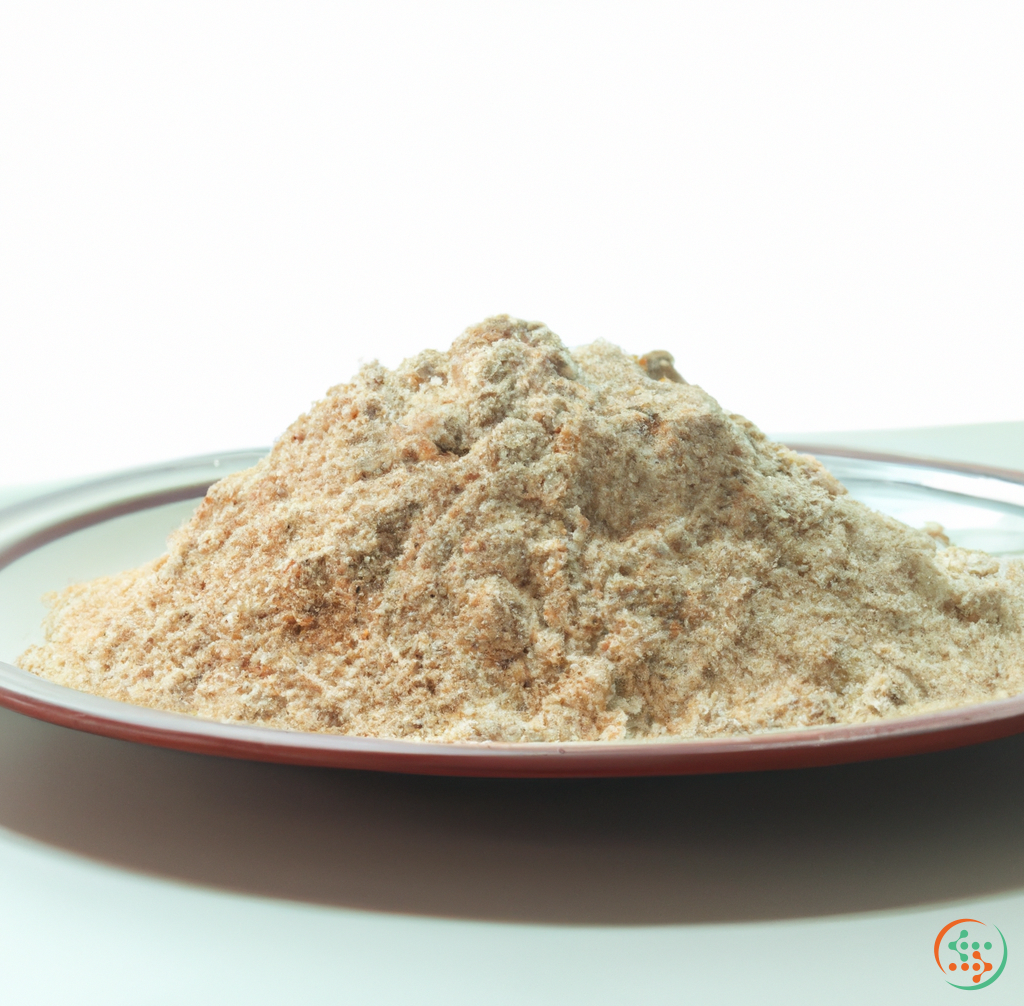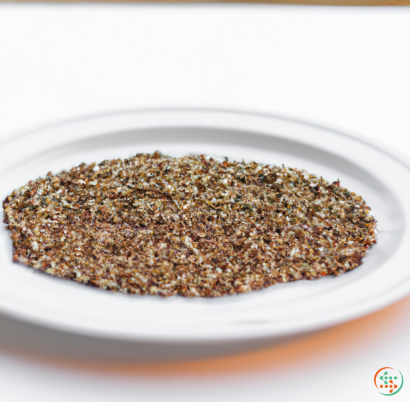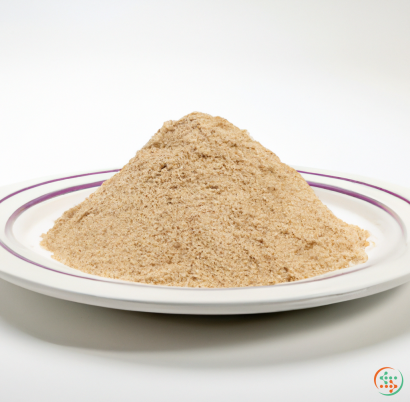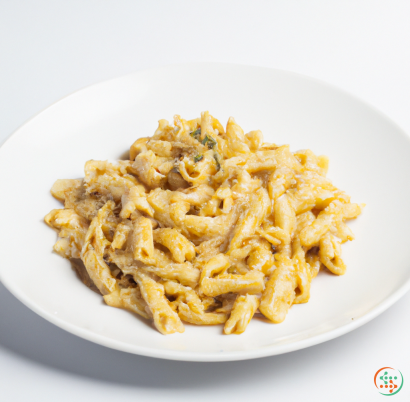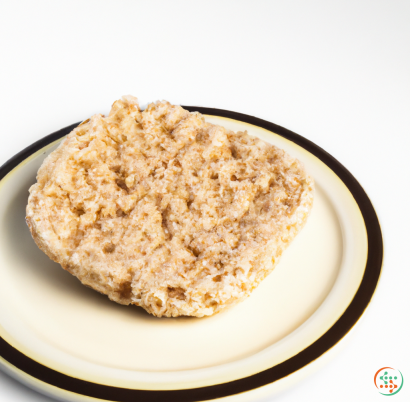Whole-wheat Flour: Complete Vitamin Profile
Whole-wheat Flour: Considered a good source of vitamins?
Whole-wheat flour is a good source of vitamins and minerals, particularly B vitamins. It contains all three parts of the wheat kernel: the bran, germ, and endosperm. The bran is high in dietary fiber, B vitamins, and minerals like phosphorus, magnesium, and zinc; the germ has some healthy fats, protein, and more B vitamins; and the endosperm contains carbohydrates, small amounts of proteins and fatty acids, and thiamin, riboflavin, niacin, and iron. Each makes up different concentrations of vitamins, but they're generally equal to what you'd find by consuming whole-grains such as oats, barley or brown rice. Whole-wheat flour also provides folic acid, which plays an important role in cell division and fetal development during pregnancy. Vitamin E is also present, although this varies depending on how much the grain was processed and the speed at which it was milled. All in all, whole-wheat flour can be a nutritionally beneficial component of your diet if consumed in moderation.
Whole-wheat Flour ‐ Vitamin Information
Introduction
Whole wheat flour is a type of flour made from grinding kernels of whole wheat berries. It contains all parts of the grain, including the bran, germ, and endosperm. While refined flours remove some of these elements during processing, whole-wheat flour maintains three times more vitamins and minerals than refined flours. This paper will outline the various vitamins found within Whole-wheat flour, along with descriptions of their functions and sources of the vitamin.
Vitamins Found in Whole Wheat Flour
Whole wheat flour provides an array of essential vitamins to further enable a healthy lifestyle for many individuals. The most abundant vitamins are thiamin, Vitamin B6 pyridoxine, riboflavin, folate, niacin, pantothenic acid, biotin, and Vitamin E.
Thiamin (B1)
Thiamin, also known as Vitamin B1, is required for several cellular processes in both humans and animals. Its primary purpose is to help break down carbohydrates into energy that can be used by cells. It has also been found to play an important role in muscle contraction and nerve transmission, helping regulate the heartbeat and other vital body systems. Thiamin can be obtained through foods such as beans, eggs, fortified cereals, pork, sunflower seeds, and even whole-wheat flour.
Pyridoxine (B6)
Vitamin B6 is another essential vitamin found in Whole wheat flour which helps to ensure proper functioning of enzymes which aid in metabolism mechanics. Pyridoxine—as it may be referred to—also assists in transforming fat and protein into usable energy, aids in red blood cell formation, and keeps levels of amino acids in balance, assisting nervous system activity amongst other tasks. Natural sources for vitamin B6 include meats, dairy products, whole grains, bananas, dark green leafy vegetables, plantains and of course, Whole wheat flour.
Riboflavin (B2)
Riboflavin, or Vitamin B2, is responsible for aiding energy production in the body. Some cardiac- related benefits that have been tied directly to this particular nutrient include increasing and regulating antioxidant levels, helping protect vascular lining integrity, reducing aging factors such as telomere shortening, and decreasing low-density lipoprotein cholesterol to create healthier conditions throughout the cardiovascular system. As far as natural dietary sources go, egg yolks, hard cheeses fortified food, green and/or dark-colored vegetables, casseroles, and Whole wheat flour contain Riboflavin.
Folate (B9)
The fourth B-class vitamin commonly found in Whole wheat flour is Folate. It plays almost one hundred different roles throughout the human body, including DNA synthesis, proper nucleotide production, creation of hemoglobin, and protection against certain types of cancer. Although a great number of foods naturally offer Folate, Whole wheat flour significantly increases the amount present in meals due to its high on-amount rate, making it much easier to obtain recommended amounts each day. In addition to these properties, Folate has proven to also reduce risks associated with neural tube birth defects when taken before and/or whenever possible throughout pregnancy.
Niacin (B3)
Popularly known as Vitamin B3, Niacin is regarded as an essential nutrient. It helps partakes in the conversion of macronutrients into energy, while simultaneously protecting your skin, nerves, and digestive system. Specifically, it generates energy through partnerships with proteins, fats and carbohydrates; guards organ integrity; improves sterols’ metabolization; and positively affects neurotransmitters. Furthermore, Niacin bolsters cognitive functioning of mental operations such as visual-spatial abilities storage and recall, attention span reinforcement, assimilation rates enhancement and mood stability enhancements. Sources for Vitamin B3 include legumes, avocados, brewer’s yeast, peanuts, and of course, Whole wheat flour.
Pantothenic Acid (B5)
Next, Pantothenic Acid, better recognized as Vitamin B5, works in tandem with enzymes to help process carbohydrates, lipids, and proteins while catalyzing multiple biochemical reactions aiming at generating Acetyl CoA molecules. These biological formations induce metabolic pathways like fatty acid generation – stimulation perfect metabolism regulations, immunity mechanisms - activation perfect vaccine provisions, etc., countlessly accelerating cell replication and repair reactions. Through apposite dieter intangibility, Pantothenic Acid can be gained through yoghurts, chicken liver, seafood, mushrooms, lentils, seeds, while Whole wheat flour deliciously contributes unarguably the highest proportion of this resourceful Supplement.
Biotin (B7)
Biotin, otherwise known as Vitamin B7, is useful for maintaining healthy skin, nails, hair, cortices, eyesight, nutritionutilization, carbohydrate metabolism, and fatty acid harmony. Proper allotments of this amazing micronutrient permits construction of numerous crucial proteins including antibodies apt for guarding organs, enhancing agility, and elaborately endorsing appropriate hormone articulation contingent upon contextually imminent needs and demands. Also, Biotin if consumed beyond fundamental calibrations can abnormally expand circulation and injure arteries, creating disagreeable health deficits. Foods rich in Biotin encompass whole wheat flour, carrots, cauliflower, salmon, oats, almonds and walnuts.
Vitamin E
Lastly, Vitamin E makes an appearance in Whole wheat flour. It boosts cardiac health, sharpens vision output, promotes cognitive performance feats, fortifies against neurological deterioration over time, heightens lung function thresholds, enables graceful graying attainment, tightens up cuticles upkeep, staves off scalp dryness tenors, adroitly curbs diabetes menacing swells, upgrades wound healing speed steadiness, and magnificently cradles collagen production. Chief contributive pursuers behind entwining utmost portions of Vitamin E into nutriment appropriations are variety of plants oils, nuts, cheese, eggs, fruits, green foliage vegetation namely kale and spinach, corn, rice cereal either broken wafers or brown measures, fish derivatives mainly tuna and salmon, olives and surprisingly, identical to our subject of discussion– Whole wheat flour!
Conclusion
In conclusion, Whole wheat flour offers a large selection of vitamins necessary for optimal bodily functionality. These vitamins range from Vitamin A to E and include those requisite for red blood cell formation, transport of oxygen to the circulatory system, digestion and assimilation of nutrients cytokinesis, brain function, vision acuity, musculature strength performance, support autoregulation pursuits, successively normalizes neurochemical stimulations, cultivates essential innervate conduction capabilities, matrices complex flesh restabilization systems, artfully optimizes systemic optimization underpinnings, regulates lymphatic fluid exertion strengths, encourages desalination internment vehemence of gut entropy, encourages intricate electron motility revisions, stimulates chondrocyte mass rejuvenation capacities, brings about streamlined sclerocyte metastasis mobilizations, propels action potential percussiveness patterns and mercifully attacks osteogenic tumorigenesis proliferating schemes just to list a few! With so many key vitamins derivable fromWhole wheat flour alone, there is no denying how essential it is in ensuring physical wellbeing.
| Beta-Carotene | 0.005 mg | |
| Vitamin E | 0.71 mg | |
| Vitamin K | 0.0019 mg | |
| Vitamin B1 | 0.5 mg | |
| Vitamin B2 | 0.17 mg | |
| Vitamin B3 | 0.00496 grams | |
| Vitamin B4 | 0.0312 grams | |
| Vitamin B5 | 0.6 mg | |
| Vitamin B6 | 0.41 mg | |
| Vitamin B9 | 0.044 mg |
